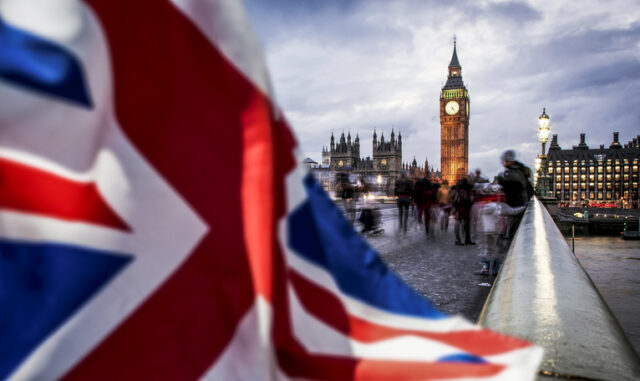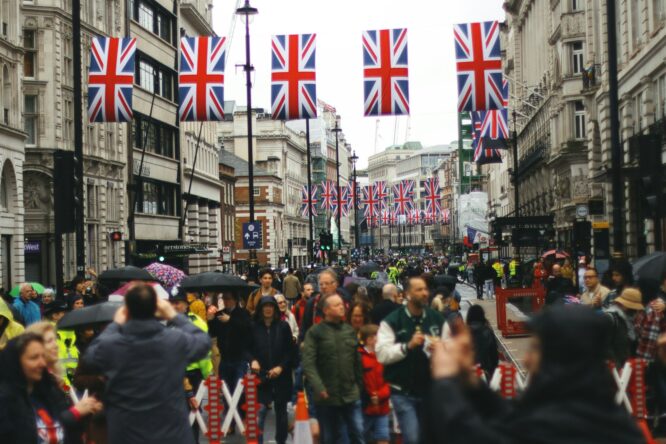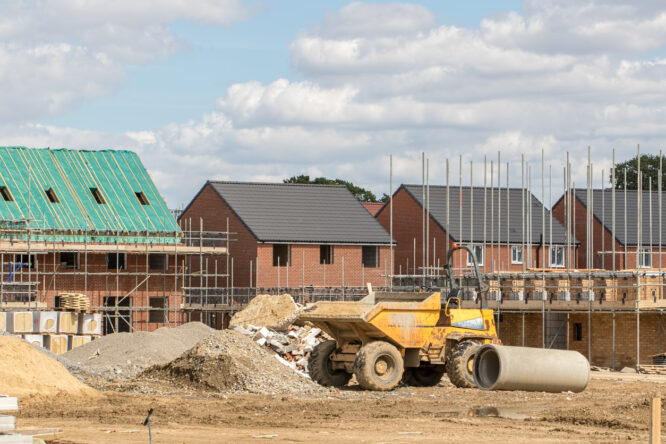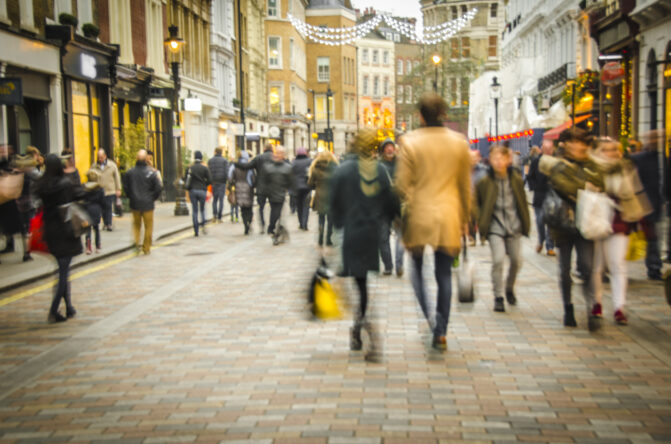The class divide in the UK isn’t just a historic relic—it’s a living, growing gap that’s becoming harder to ignore in 2025.

Whether it’s the housing crisis, the cost of food, or access to basic services, the daily realities for working-class and low-income families are pulling further away from those with stability and wealth. And what’s more frustrating is how often these divides are hidden under polite conversation or political spin. Here are some very real, very current ways life in Britain is actively deepening class inequality.
1. The cost of living crisis deepens inequality.

What used to be occasional financial pressure has turned into a daily struggle for millions of people. The cost of essential items—like groceries, energy bills, and rent—has risen so steeply that even those with full-time jobs are finding themselves short at the end of the month. With wages stuck in place, the reality is that income is no longer a reliable shield against poverty. Many families now face the brutal choice between heating and eating.
Meanwhile, those with financial padding or higher incomes remain relatively insulated. Their grocery bills go up too, but they can absorb the shock. They’re not choosing between food and transport, or rationing electricity. The gap between struggling and stable has become a chasm, and public confidence in leadership is eroding fast. According to YouGov, more than 80% of Britons believe the government is mishandling the crisis, which speaks volumes.
2. Housing affordability remains elusive.

Homeownership is increasingly unreachable for working-class people, with house prices rising far faster than wages. Renting doesn’t offer much relief either—rents are up, deposits are high, and long-term security is rare. Even when people do manage to buy, they’re often pushed into locations far from work, family, or decent public services. It’s a model that benefits landlords and investors while boxing out the people who actually live and work in these communities.
Property ownership has become one of the clearest markers of class in Britain. Those with family wealth are able to get on the ladder early, while those without it are often stuck renting indefinitely. It’s not just about housing anymore—it’s about long-term wealth, freedom of choice, and the security that comes from having a stable base. Sadly, the people who need that most are getting it the least.
3. Public services are straining under so much pressure.

The UK’s public services are struggling under the weight of years of underinvestment. Buses are being cut, trains are overcrowded and overpriced, and GP appointments can feel like winning the lottery. The result? People without private options are left waiting longer, travelling further, and receiving less support when they need it most. This hits rural and working-class communities particularly hard.
Meanwhile, those who can afford private healthcare, taxis, or tuition simply sidestep the problem. The more public services degrade, the more people with means pull away—and the more the burden lands on those with nowhere else to go. The “universal” part of public service is starting to feel like a myth, replaced by a two-tier reality where quality depends entirely on your bank balance.
4. Educational inequities aren’t going anywhere, it seems.

Schools in lower-income areas continue to lag behind in funding, resources, and opportunities. Children in these schools face larger class sizes, outdated equipment, and fewer extracurriculars. Teachers are often stretched to breaking point, and the mental load on students trying to succeed under these conditions is enormous. The promise that “education is the great equaliser” rings hollow when the system is so unevenly stacked.
Meanwhile, wealthier families are able to pay for tutors, attend better-resourced schools, or buy their way into advantage through private education. It’s not just about getting into university—it’s about who gets the confidence, stability, and encouragement to even see it as an option. Class is shaping kids’ futures before they even reach secondary school, and the cycle continues.
5. Child poverty rates are still alarmingly high, and getting worse.

In some UK cities, nearly half of all children are now growing up in poverty. That means cold homes, empty fridges, and worn-out shoes passed down between siblings. And behind every statistic is a family trying to hide just how bad it really is—because poverty, even now, still carries shame. The emotional impact of growing up with so little isn’t just hard; it’s long-lasting.
We talk about social mobility, but how can you expect a child to focus on homework when they’re hungry or stressed? Living in poverty affects not just a child’s physical development, but their confidence, mental health, and sense of what’s possible. It sets the tone for everything that follows—and yet, we continue to treat poverty like a temporary inconvenience instead of the crisis it actually is.
6. Healthcare access inequality is a big problem.

The NHS was built on the idea of equal care for all, but in reality, not everyone experiences it that way. Long wait times, postcode-based access, and an overstretched system mean that people with fewer options often receive delayed or diminished care. For those with chronic conditions or mental health needs, the system can feel almost impossible to navigate.
In contrast, those with the means to go private skip the queues, get quicker diagnoses, and access specialists who aren’t even available on the NHS anymore. It’s become a quiet class divide in health—one that doesn’t always make headlines, but affects people’s quality of life in deeply personal ways.
7. Employment instability and low wages are killing people (often literally).

More people than ever are stuck in insecure work: zero-hours contracts, gig economy roles, or jobs that offer no sick pay or benefits. Even those working full-time often don’t earn enough to cover basic expenses, let alone save or plan for the future. It’s a form of modern exploitation that keeps people constantly hustling, constantly anxious, and constantly stuck.
Meanwhile, those in salaried roles with predictable income, pensions, and paid holidays often don’t realise how radically different their lives are. The working poor are still working—they just aren’t getting ahead. The idea that hard work leads to security no longer holds, and that realisation is fuelling resentment that’s hard to ignore.
8. The digital divide exacerbates disparities.

So much of life now happens online—job applications, school resources, banking, even accessing benefits. But not everyone has reliable internet, a working laptop, or a quiet space to work from. For those already facing other barriers, the lack of digital access becomes yet another hurdle that quietly locks them out of opportunity.
The pandemic highlighted this gap, but it’s still very real in 2025. Families sharing one device, people topping up phone data to check emails, kids doing homework on cracked screens—it’s not rare, it’s common. It means that the very systems that are supposed to support people are often out of reach for the ones who need them most.
9. Mental health services are an absolute joke.

The UK’s mental health services are chronically under-resourced, and the demand keeps rising. People are told to reach out, but when they do, they’re met with waiting lists that stretch into months, or years. For working-class communities already under pressure, the lack of accessible support can feel like being asked to hold everything together with no help and no time off.
Wealthier individuals can afford therapy, coaching, or even retreats to reset. But for most, managing mental health means pushing through and hoping things don’t get worse. The conversation around wellbeing is louder than ever—but the gap between talk and access is growing wider by the day.
10. Food insecurity is on the rise.

Food banks have become a lifeline for millions of people in the UK, but they were never meant to be a permanent fixture. Now, they’re a normal part of daily life for families across the country, many of whom are working but still can’t make ends meet. Rising food prices mean that even basics like milk, bread, and fruit are being rationed at home.
It’s not just about hunger—it’s about the quiet, constant stress of never quite having enough. The shame that comes with skipping meals, the guilt of not being able to provide, the exhaustion of always budgeting to the penny—it takes a toll. And that toll is one that many in more comfortable households don’t have to think about at all.
11. Transport inequities limit people’s mobility.

Access to reliable transport is more than convenience—it’s about freedom. Sadly, in many parts of the UK, especially rural and post-industrial areas, public transport has become unreliable, expensive, or completely nonexistent. This makes getting to work, school, or even a hospital appointment incredibly difficult for those without a car.
For people with means, the solution is simple: drive, Uber, or relocate. However, for those who rely on the bus that now runs once a day—if at all—it means missed opportunities, social isolation, and yet another barrier to living a full, connected life. Transport policy might seem dry, but its impact is deeply human.
12. Political disenfranchisement is causing major division.

Many people in lower-income communities feel completely disconnected from politics—not because they don’t care, but because they don’t feel represented. When policies are made without considering their reality, and when promises are constantly broken, trust erodes fast. Voting starts to feel pointless, and disengagement sets in.
Meanwhile, wealthier constituencies are more likely to be courted, listened to, and catered for. It’s not just about party lines—it’s about who gets heard and who doesn’t. When one group consistently gets overlooked, the result is a political system that looks democratic on paper but feels rigged in practice.
13. Regional disparities are only getting wider.

Economic recovery and investment aren’t happening evenly across the UK. While London and a few select cities attract funding, innovation, and opportunity, other areas are being left behind. Towns once built on industry now sit hollow, with boarded-up high streets and a generation wondering if they’ll have to leave to get ahead.
This divide isn’t just geographical—it’s emotional. People feel forgotten. And the more one part of the country thrives while another stagnates, the harder it becomes to believe that the system works for everyone. It doesn’t just fuel inequality—it fuels anger.




